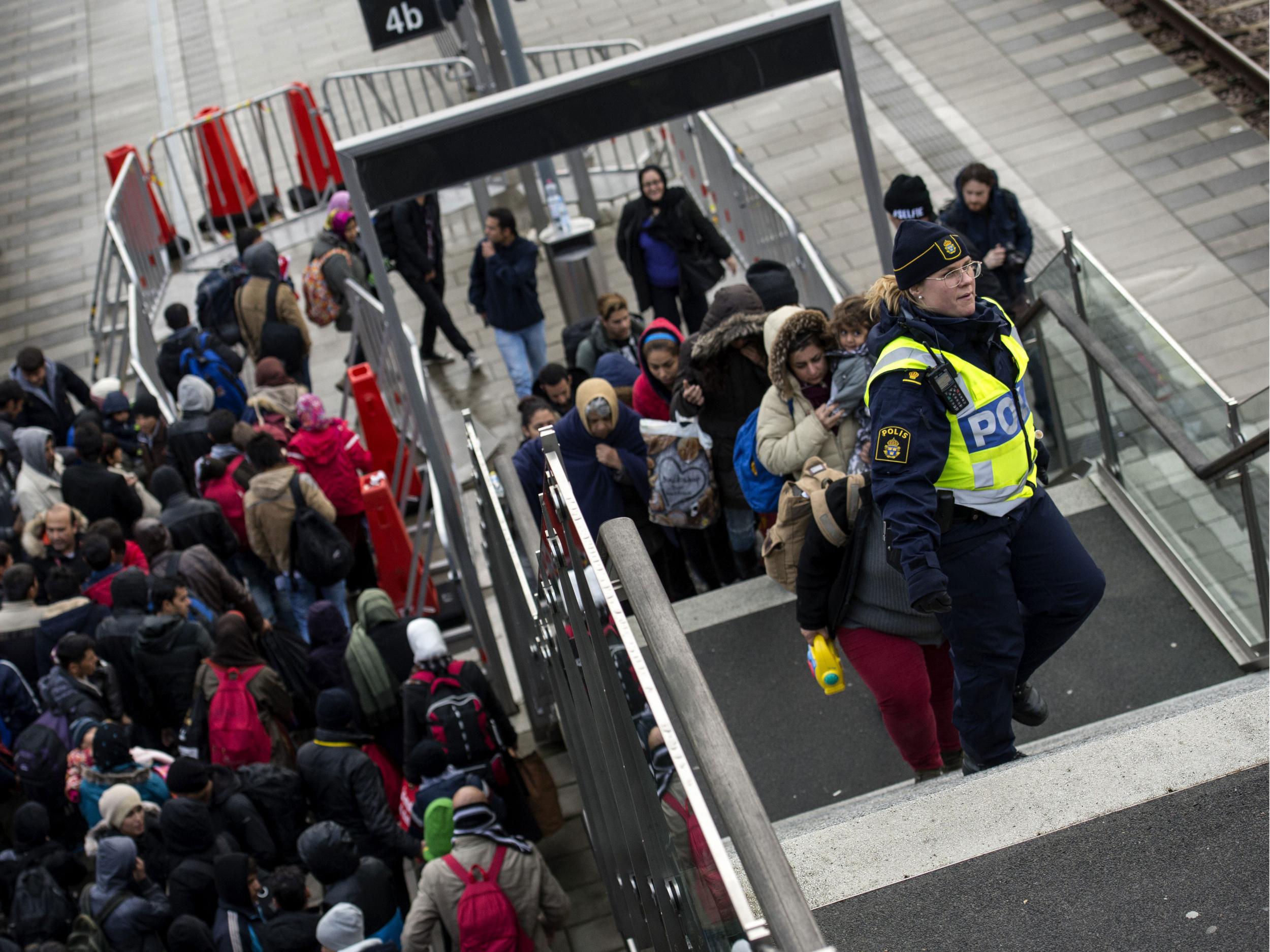Refugee crisis: Sweden admits 'we simply don’t know where they are' after 14,000 illegal immigrants go underground
The news comes as the country attempts to increase its border patrols

Your support helps us to tell the story
From reproductive rights to climate change to Big Tech, The Independent is on the ground when the story is developing. Whether it's investigating the financials of Elon Musk's pro-Trump PAC or producing our latest documentary, 'The A Word', which shines a light on the American women fighting for reproductive rights, we know how important it is to parse out the facts from the messaging.
At such a critical moment in US history, we need reporters on the ground. Your donation allows us to keep sending journalists to speak to both sides of the story.
The Independent is trusted by Americans across the entire political spectrum. And unlike many other quality news outlets, we choose not to lock Americans out of our reporting and analysis with paywalls. We believe quality journalism should be available to everyone, paid for by those who can afford it.
Your support makes all the difference.More than14,000 illegal immigrants living in Sweden have gone underground to avoid deportation after the country ended its "open door policy" for refugees.
A total of 21,748 immigrants were told to leave Sweden by the Migration Agency at the end of October, of those 14,140 are registered as “departed” or “wanted”.
Some are believed to have left the country, while others are thought to hiding.
It has been reported that the government has previously announced plans to stop illegals from staying in the country, but police say most of its resources are current devoted to carrying out passport checks after the border security was increased.
“We simply don’t know where they are,” Patrik Engstrom, head of the national border police told The Local. “It is a huge task and it is completely dependent on the police being allocated resources.”
The majority of the immigrants avoiding deportation are doing so due to the Dublin Regulation, in which immigrants are deported back to the first EU country they entered. However, if they are able to delay their re-applications by 18 months they may be allowed citizenship in Sweden.
Join our commenting forum
Join thought-provoking conversations, follow other Independent readers and see their replies
Comments